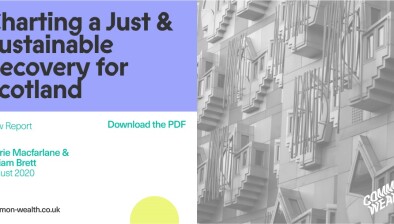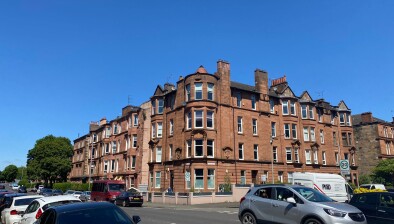Scottish Government should reconsider value of ‘uniquely insecure’ PRS
 The private rented sector (PRS) has tripled in size since the advent of devolution and its reversal is a goal that Holyrood should “triumph not fear”, a new report has argued.
The private rented sector (PRS) has tripled in size since the advent of devolution and its reversal is a goal that Holyrood should “triumph not fear”, a new report has argued.
New data on the experience of households in Scotland analysed by think tank Common Weal has revealed that the PRS continues to have an “appalling” record on housing security, affordability and quality.
The study makes the case for increased regulation of the PRS and the re-establishment of social housing as a universal service.
Released ahead of Common Weal’s Housekeeping Scotland Convention last weekend as part of the think tank’s long-term project to radically transform the Scottish housing agenda, the new study – ‘Alienated, insecure and unaffordable: Living in Scotland’s Private Rented Sector’ – used data from the Scottish Household Survey 2016, published by the Scottish Government at the end of September, to draw comparisons between the PRS and social housing.
Common Weal head of policy, Ben Wray, argues that the PRS is “uniquely insecure”, with 68% of Scottish residents staying less than two years in one flat and 41 % staying less than one year. Compared to the average PRS stay of 2.8 years, people resided in social housing for an average of 10.6 years.
Due to this among other factors, there is a large and unsatisfied demand within Scotland’s PRS for social housing, with 40,000 PRS residents (11 per cent) on a social housing waiting list. Of that number, approximately 5,000 have been on that waiting list for more than a decade, despite nearly a third of them being unable to afford their current housing, and over a tenth being threatened with homelessness.
While the report acknowledges that it is too early to judge the effectiveness of recent Scottish Government legislation on security of tenure and rent pressure zones, Common Weal nonetheless argues that the government could achieve more through the introduction of wide-ranging regulatory changes, rent controls and measures to combat the effects of gentrification.
The report also draws a contrast between Scotland’s modern housing situation and its social housing sector 40 years ago, when “the profile of social housing was broadly the profile of Scotland as a whole”.
“Today”, the report argues, “it tends to provide provision only for the poorest and most vulnerable. More is urgently needed in this respect given the rise in rough sleeping in many of Scotland’s urban centres, the Scottish Government should look at broadening and deepening its social housing strategy for wider sections of society.
“The idea that social housing is only for the poor creates an unnecessary stigma around for those living in the sector and drives an unhealthy obsession with home ownership (which has not always existed). A rent system which tied quality to cost and cost to affordability could be applied to a more diverse social housing sector in the future as well, creating a universal social housing service once again.”
Author Ben Wray said: “Party conference season so far has been full of talk about housing, unsurprisingly after the Grenfell Tower tragedy woke the political class out of their sleepy complacency on the issue.
“In Scotland, we have the powers to rectify the housing crisis now – it’s time we made full use of them and ended once and for all Thatcher’s legacy of unequal, unaffordable and insecure housing.
“This report shows that the increasing privatisation of the rental market in Scotland over successive governments since devolution has created intolerable circumstances for many tenants in the private rented sector, who sadly have housing conditions significantly worse than social housing.
“It is time for Scottish politicians to seriously consider policies aimed at reversing the privatisation trend in the rental market, by significantly expanding the size and diversity of social housing and creating a regulatory regime for the private rented sector which enforces security, quality and affordability.”
The report was welcomed by the Scottish tenants union and campaign group Living Rent.
Living Rent activist Craig Paterson said: “Now is not the time to muse over these findings and let them be forgotten, rather it should be a siren call to immediate action.
“We again repeat our call for an immediate rent cap in both the public and private sector, in order to bring a halt to the spiralling cost of living and to help alleviate the continued degradation of people’s mental health from shoddy housing conditions.”







